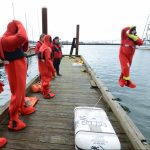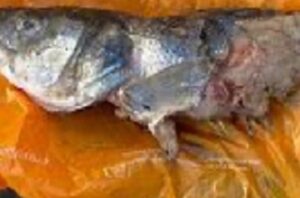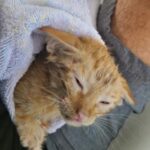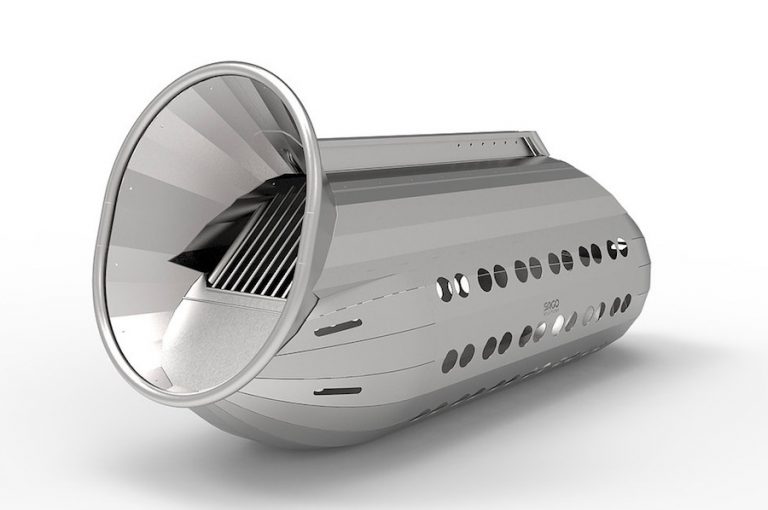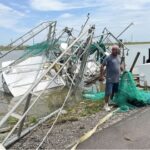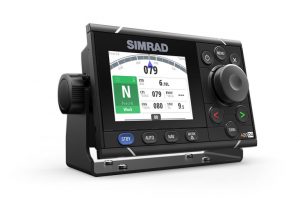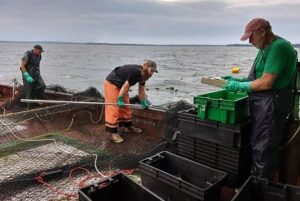Tag Archives: University of New Brunswick.
Gliders: Scientists add more underwater robots to monitor North Atlantic right whales
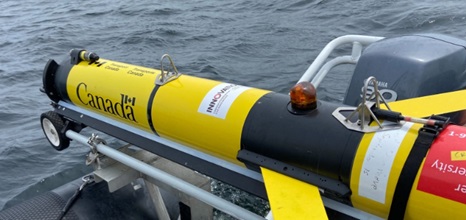 In the race to protect the endangered species, researchers are bringing in more underwater robots—unmanned vehicles known as gliders that slowly patrol the Gulf of St. Lawrence, passively listening for whales. Gliders can stay at sea for months, move far offshore and work in all types of weather. They’re equipped with underwater microphones that scientists use to track the animals. The team added a third glider to its fleet this summer, expanding its ability to monitor whales’ whereabouts by sea and air. It’s collaborative effort involving researchers from University of New Brunswick, Ocean Tracking Network, Transport Canada and Woods Hole Oceanographic. more, >>CLICK TO READ<< 19:37
In the race to protect the endangered species, researchers are bringing in more underwater robots—unmanned vehicles known as gliders that slowly patrol the Gulf of St. Lawrence, passively listening for whales. Gliders can stay at sea for months, move far offshore and work in all types of weather. They’re equipped with underwater microphones that scientists use to track the animals. The team added a third glider to its fleet this summer, expanding its ability to monitor whales’ whereabouts by sea and air. It’s collaborative effort involving researchers from University of New Brunswick, Ocean Tracking Network, Transport Canada and Woods Hole Oceanographic. more, >>CLICK TO READ<< 19:37
Lobster tagged in New Brunswick caught over 250 kilometres away in Maine
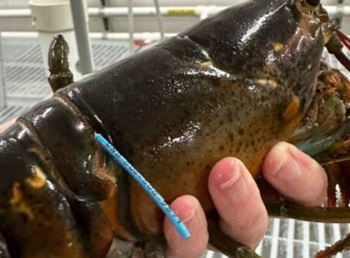 Emily Blacklock was scrolling through social media when she spotted a video of a Maine fisherman hauling in an unexpected catch, a lobster with a tag from her research team found hundreds of kilometres away from where it was attached in New Brunswick. “All of a sudden I saw one of our blue tags, so I ended up messaging him,” she said. “We all know it’s possible that lobsters go from the Bay of Fundy to the Gulf of Maine, but the chance of him being the one to catch that lobster and make a video was fantastic.” Blacklock, a PhD candidate at the University of New Brunswick, is part of a team of researchers trying to find a way to identify the age of lobsters. Photos, more, >>click to read<< 16:49
Emily Blacklock was scrolling through social media when she spotted a video of a Maine fisherman hauling in an unexpected catch, a lobster with a tag from her research team found hundreds of kilometres away from where it was attached in New Brunswick. “All of a sudden I saw one of our blue tags, so I ended up messaging him,” she said. “We all know it’s possible that lobsters go from the Bay of Fundy to the Gulf of Maine, but the chance of him being the one to catch that lobster and make a video was fantastic.” Blacklock, a PhD candidate at the University of New Brunswick, is part of a team of researchers trying to find a way to identify the age of lobsters. Photos, more, >>click to read<< 16:49
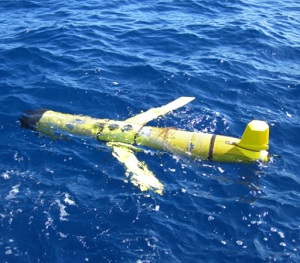
Underwater gliders will monitor North Atlantic right whales in the Gulf of St. Lawrence
The newest glider will carry a hydrophone, which can identify the calls of right whales and report their locations,,, “There is no one way to effectively determine where the whales are at any given moment when they are in the Gulf of St. Lawrence,” Fred Whoriskey said, “So we need to start blending our approaches.” Aerial surveillance is only good on sunny days with few waves, he said, adding that hydrophones mounted on fixed buoys have their limitations. “This year we are deploying gliders into the shipping channels,” he said. “They go down, listen and detect whale calls and come up to the surface periodically and broadcast information whether there are whales there or not.” >click to read< 11:25
New Brunswick scientists seek cod parasite vaccine
![]() Loma morhua is an infectious parasite that latches onto the gills of the large fish, draining them of health. It is partly to blame for the cod aquaculture crash a few years ago in Atlantic Canada. Researchers say that the parasite might be causing the fish to slowly drown, or become dehydrated. “Given the fact that the parasite establishes on the gills of the fish — that ultimately it causes an impermeability for fish to acquire oxygen in the water,” says Michael Duffy, head of the research team at the University of New Brunswick. more@cbc 22:38
Loma morhua is an infectious parasite that latches onto the gills of the large fish, draining them of health. It is partly to blame for the cod aquaculture crash a few years ago in Atlantic Canada. Researchers say that the parasite might be causing the fish to slowly drown, or become dehydrated. “Given the fact that the parasite establishes on the gills of the fish — that ultimately it causes an impermeability for fish to acquire oxygen in the water,” says Michael Duffy, head of the research team at the University of New Brunswick. more@cbc 22:38

































